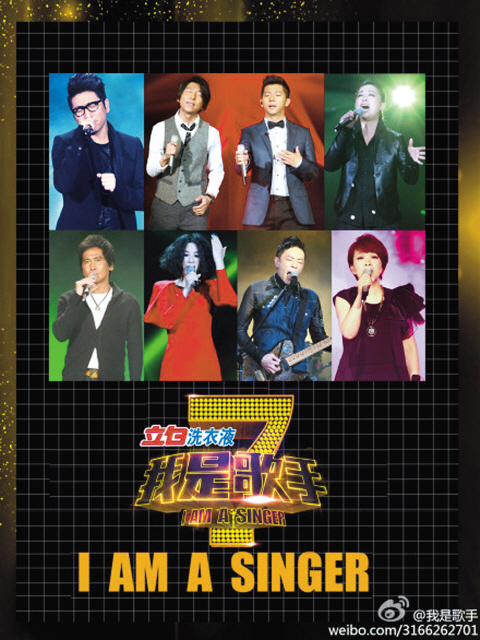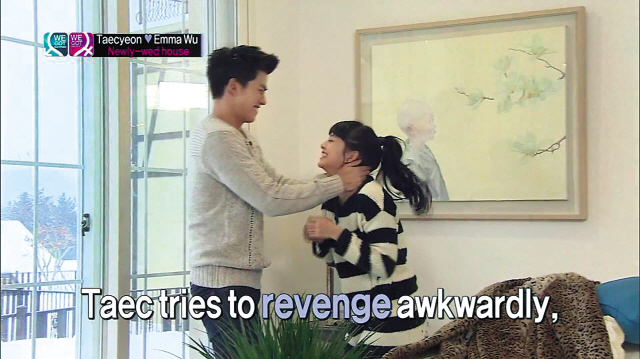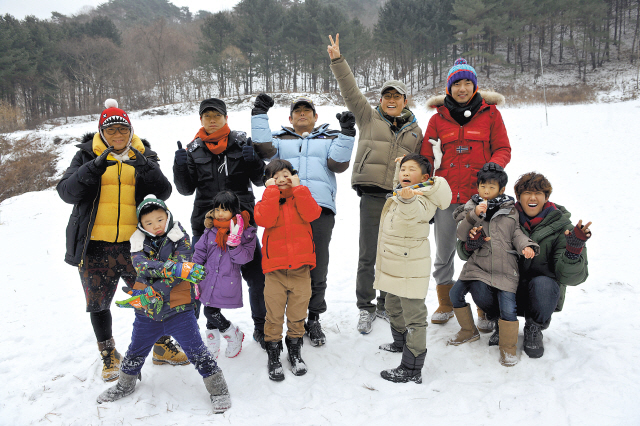TV program formats emerge as new hallyu exports
Content format industry seen likely to grow into W100b market by 2015
By Korea HeraldPublished : April 30, 2013 - 20:32
A singer looks into the camera, singing his heart out. The audience is reduced to tears and gives rapturous applause. Still, one of the seven singers must go home.
If this sounds all too familiar, it should be. It is part of the MBC hit show “I Am a Singer,” where seven contenders compete to become the “best singer in the nation” ― except now, it is aired in China with a Chinese cast, targeting the Chinese audience.
If this sounds all too familiar, it should be. It is part of the MBC hit show “I Am a Singer,” where seven contenders compete to become the “best singer in the nation” ― except now, it is aired in China with a Chinese cast, targeting the Chinese audience.


The show, which began airing here in early 2011, caught the attention of broadcasting network executives at Hunan TV, one of the most widely viewed satellite TV stations in China. After a series of negotiations, the Chinese version of “I Am a Singer” ― “Wo Shi Geshou” in Chinese ― began airing on Jan. 18 this year. It started with 1 percent viewer ratings and ended with nearly 4 percent for its final 16th episode.
“Considering the vast population and fierce competition among TV broadcasters, getting 1 percent viewing rate is considered a real success there. Hitting 4 percent is almost like hitting the jackpot,” said Kim Sung-woo, MBC international business and relations director.
Program format export has become a powerful facet of hallyu as more markets seek their own versions of popular Korean TV programs.
Starting in 2003 with KBS’ “Golden Bell” quiz show that features 100 students tackling 50 questions to ring the final “golden bell,” more than 17 formats and basic ideas for popular programs, usually entertainment shows, have been sold overseas. Overseas viewers can now enjoy their own version of Korean matchmaking, quiz and reality variety shows.
The biggest force behind the surge of Korean program formats is familiarity abroad with general Korean cultural content. The rise of hallyu stars has also resulted in people not only enjoying K-pop or TV dramas but also becoming accustomed to Korean culture itself, experts say.
“They first look at the stars, but soon they share laughter and feel familiar with the program,” said Song In-jung, an official at the Korea Creative Contents Agency.
The fact that all the programs including KBS’ “Beauties in a Chatterbox” and “Vitamin,” tvN’s “Super Star K,” MBC’s “We Got Married” and others have gained both commercial and critical success proves that more people are eyeing the rather unfamiliar but equally competitive Korean industry. After successfully selling a format to Turkey, MBC produced its own international version of “We Got Married” starring stars of Korea, Japan and China.
“Korean cultural sentiment can be shared with others, especially Asian people. The family values, the emphasis on love and friendship also allow the viewers to connect with the program,” Song said.

Based on such universality, MBC is in talks with several Chinese TV stations about exporting “Appa, Eodiga? (Daddy, Where are We Going?)” Meanwhile, tvN’s “Eungdaphara 1997 (Answer me, 1997)” was picked among the Top 5 International Hits that are ripe for American remakes by Entertainment Weekly.
It’s of course all about money. Program format development and exports are proving lucrative. For instance, BBC’s “Strictly Come Dancing” has been sold to more than 30 countries and has generated 168 billion won ($152 million) in yearly profit.
“When you sell formats, chances are high that they will be serialized and create profits on a regular basis, which is a great business opportunity,” said Cho Hong-rae, spokeswoman of CJ, the mother company of tvN. MBC also said “I Am a Singer” was commissioned for second and third seasons thanks to its phenomenal success.
More significantly, perhaps, is that Korea has rid itself of its image as a “copycat” of Japanese and American cultural content. During the 1990s, TV stations were accused of plagiarizing Japanese program formats, which were regarded as more advanced than those of Korea.
“Korea still imports a lot of program formats. Popular shows such as ‘1 vs. 100,’ ‘Dancing with The Stars,’ ‘Korea’s Next Top Model’ and others all originated from overseas. But through the experience and know-how we have accumulated, we are developing original ideas to attract others now,” Song of KOCCA said.
The government has also been keen on the issue and in 2012 released a set of ideas to boost the content format market with the aim of growing it into a 100 billion won ($91 million) business by the end of 2015.
By Bae Ji-sook (baejisook@heraldcorp.com)
-
Articles by Korea Herald


![[AtoZ into Korean mind] Humor in Korea: Navigating the line between what's funny and not](http://res.heraldm.com/phpwas/restmb_idxmake.php?idx=644&simg=/content/image/2024/04/22/20240422050642_0.jpg&u=)


![[Exclusive] Korean military set to ban iPhones over 'security' concerns](http://res.heraldm.com/phpwas/restmb_idxmake.php?idx=644&simg=/content/image/2024/04/23/20240423050599_0.jpg&u=20240423183955)
![[Herald Interview] Why Toss invited hackers to penetrate its system](http://res.heraldm.com/phpwas/restmb_idxmake.php?idx=644&simg=/content/image/2024/04/22/20240422050569_0.jpg&u=20240422150649)
![[Graphic News] 77% of young Koreans still financially dependent](http://res.heraldm.com/phpwas/restmb_idxmake.php?idx=644&simg=/content/image/2024/04/22/20240422050762_0.gif&u=)







![[Exclusive] Korean military to ban iPhones over security issues](http://res.heraldm.com/phpwas/restmb_idxmake.php?idx=652&simg=/content/image/2024/04/23/20240423050599_0.jpg&u=20240423183955)



![[Today’s K-pop] Ateez confirms US tour details](http://res.heraldm.com/phpwas/restmb_idxmake.php?idx=642&simg=/content/image/2024/04/23/20240423050700_0.jpg&u=)